Reflections Angling Project
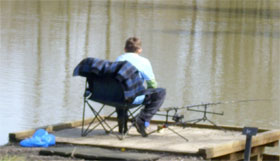
Peace by the water
The Studio has been promoting angling as a positive and therapeutic leisure activity for young people with ADHD and complex needs for several years.
Young people with ADHD get bored and distracted easily (attention deficit), act without thinking about the consequences (impulsivity), and are physically restless (hyperactivity). They tend to be thrill seekers, can be highly emotional and easily aroused to anger or confrontation.
Their strong-willed personalities need to be channelled into positive experiences that will develop their natural resilience, determination and hidden talents. There is a link between ADHD and giftedness.
ADHD is a condition that is not outgrown in childhood. Some of the symptoms lessen over time with experience, but the underlying symptoms continue into adulthood. Angling teaches self-discipline and personal skills that contribute to maturity. Life for all young people now is increasingly stressful, and rarely do they have the opportunity to relax and think in a quiet place.
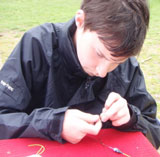
Preparing the line
Young people, particularly boys with ADHD, have restless, impulsive natures and can find concentration difficult. Sitting by a lake works wonders in teaching patience together with the ability to focus and reflect on life.
Encouraging angling as a recreational interest can be used as a means of helping young people – including the most hard to reach – to cope with the struggles of everyday life. The nature of angling allows for both group and individual engagement across social and generation barriers, increases confidence and emotional wellbeing and offers opportunities for personal achievement.
Because ADHD children often experience difficulty staying still, angling gives them the chance to move around without being criticised while fishing the pond or lake. It teaches them to concentrate, to interpret their surroundings, to visualise the invisible and to learn patience. It is something young people can do throughout their lives with friends, in clubs, or enjoy by themselves. It nurtures responsibility and environmental awareness and has been demonstrated to reduce youth offending and improve participation in school dramatically. It provides opportunities for people of all ages to enjoy a shared activity, which helps support strong communities and families.
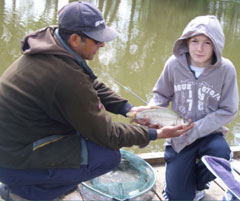
Relationship building
Many of our participants have reported that their concentration had improved thanks to the project, and more than one-third said their behaviour had improved. All reported that the project had given them more confidence.
A recent group of 13-year-olds on a fishing day included boys whose parents had divorced or separated and others who had suffered loss or bereavement. Within this group of seven, only one had a stable father figure at home. The Angling Project encourages mothers to share in their sons' leisure interests and friendships.
These boys rarely engage with multi-agency interventions and resist being "counselled", but they do respond to a trusted adult who is able to build a relationship with them while teaching the practical skills of angling, together with life and social skills.
We believe that if the circumstances where personal feelings are shared is a positive experience, then the activity involved will continue to be a safe way of dealing with difficult issues for the future.
In addition to running group fishing days, and overnight camps in the holidays that are open to all members, seven young people at risk of exclusion from school have benefited from weekly individual support and education through the Angling Project. They have gained an appreciation of the countryside and improved their angling skills, while being supported by mentoring as a means of addressing the anxiety and frustration that is often a catalyst for exclusion from school.
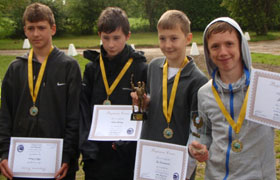
Achieving success
"I think fishing is a great experience and I especially enjoyed the day where I got my three medals. One for a tournament where I came third, which was a great achievement. When I was presented with the trophy I felt a great sense of pride and achievement. The certificate was for completing the Bronze section of the Kingfisher Award. I also won a trophy for coming third in the Surrey Clubs for Young People Fishing competition as part of The Studio team."
Quote from Jason, participant in the project
Latest news
Annual report published
Our last two annual reports can be found on the menu under "About us".
The case for early intervention
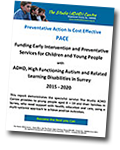
Our "Preventative Action is Cost-Effective" (PACE) report presents the economic and social arguments for providing early intervention and preventative services for children and young people with ADHD, high functioning autism and related learning disabilities in Surrey.
The Studio's multi-systemic approach has been shown to achieve positive outcomes in such cases and, as this report shows, it has the expertise to fill this gap in special needs provision.
View or download the PACE report.
CAMHS survey results

Following a period of research among parents, carers and young people who completed online surveys and attended stakeholder events across Surrey between July and October 2014, Surrey's Child & Adolescent Mental Health Service (CAMHS) has produced its Engagement Report, which summarises key messages regarding perceived unmet needs and priorities for the service.
Family Voice
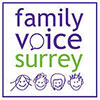
Family Voice Surrey (FVS) is the official Parent Carer Forum for Surrey, working with key decision-makers in education, health and social care to represent the families of children and young people with additional needs. You can read more about it on its website.
We urge you to sign up to be represented by FVS.